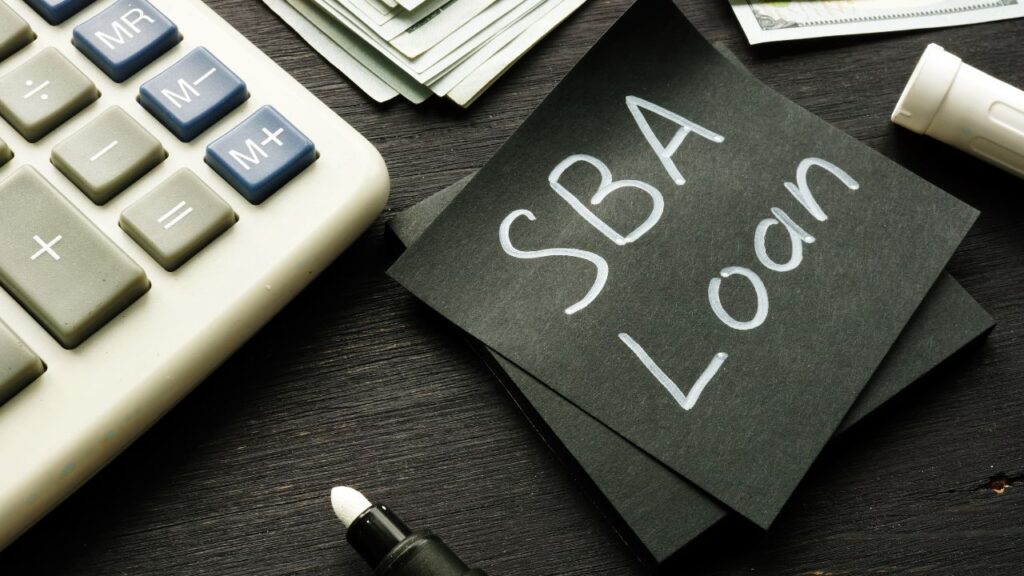
Small business loans can be difficult to come by. Either you don’t have enough years in business, perhaps not enough revenue, or lack of collateral, all factors that prove hindrances when you go to apply for a loan. This is precisely the reason why U.S. Small Business Administration loans were put in place—to help small businesses that may not otherwise qualify for financing.
SBA loans are a great option for businesses that do not qualify for other small business loans. SBA loans typically offer significant advantages such as lower interest rates, repayment terms, and flexibility of use, but they also have some negatives for borrowers to consider.
Let’s dive into some of the pros and cons of securing an SBA loan for your business.
PROS OF AN SBA LOAN
Competitive Rates
Per federal rules, participating lenders base SBA loan interest rates on the prime rate plus a markup rate known as the spread. Note that the loan’s Annual Percentage Rate, or APR, differs from the interest rate. The APR refers to the annual cost of the loan, and it is expressed as a percentage that includes all loan fees in addition to the interest rate.
APRs can vary substantially between SBA lenders and non-SBA lenders. For example, an online lender that specializes in SBA loans may cap its APR to around 10%, while major online small-business lenders that don’t offer SBA loans have loans with APRs as high as 99%.
Low Fees
Fees for SBA loans usually consist of an upfront guarantee fee, based on the loan amount and the maturity of the loan, and a yearly service fee, based on the guaranteed portion of the outstanding balance. The SBA reassesses its fee structure each year.
Longer Terms
Another perk of SBA loans is that you get more time to repay them, which means you’ll have more money available for other business needs. The loan term will depend on how you plan to use the money. The current maximum maturities are:
- Working capital or inventory loan: 10 years
- Equipment: 10 years
- Real estate: 25 years
Flexibility of Use
Some types of business loans have terms that dictate how you should use up the funds allocated. It’s essential to have a plan when borrowing a loan, even with SBA loans, but sometimes business owners need money. You can use an SBA loan for literally anything. That flexibility has a sense of freedom that allows you to refinance existing debt, make upgrades, buy new land, and much more.
CONS OF AN SBA LOAN
Difficult to Qualify
While the SBA loan programs were designed to help small businesses that might otherwise have difficulty getting approved going the traditional route, it still can be challenging to qualify. Business cash flow and credit history are hugely important. The documentation you provide will be a significant factor in whether or not your loan goes through.
Beyond this documentation and the financial statements provided, some of the other things that both lenders and the SBA evaluate in this process include your business reputation as the company owner, relevant managerial experience, if your business earnings are sufficient to repay the loan, the potential for the company’s success and sustainability, the overall strength of your business model, and the value of any pledged collateral if applicable. If you can’t meet these requirements, then it is likely you will have a difficult time being approved for an SBA loan.
Long Approval Process
Getting approved for an SBA loan requires perseverance and patience. Your application will undergo scrutiny by both the lender and, with some elements, the SBA itself. The underwriting process, for this reason, is also lengthier than with other business loans and so status updates may be less frequent. It can actually take one to three months to receive a decision on your application and be able to access funds.
Personal Guarantee Required
SBA applicants who own 20% or more of a small business must typically provide an unlimited personal guarantee. With unlimited guarantees—as the name suggests, by signing this you are going to be held responsible for the entire debt. This may also involve any legal fee or other such costs that eventually come to be associated with a business loan in default.
Furthermore, depending on the severity of the situation, your business can actually be faced with legal action unless they take the assets you pledged as physical collateral to repay the debt. Such assets might include your home, vehicles, retirement savings, and anything else of this nature.
Need Help Applying for an SBA Loan?
At First Union, we want to make the process as easy as we possibly can. Because we have worked with thousands of SBA loan applicants, our loan specialists understand precisely what needs to be done and how we can get you qualified. Fill out our online form or call us at 863-825-5626 today to explore your options.
